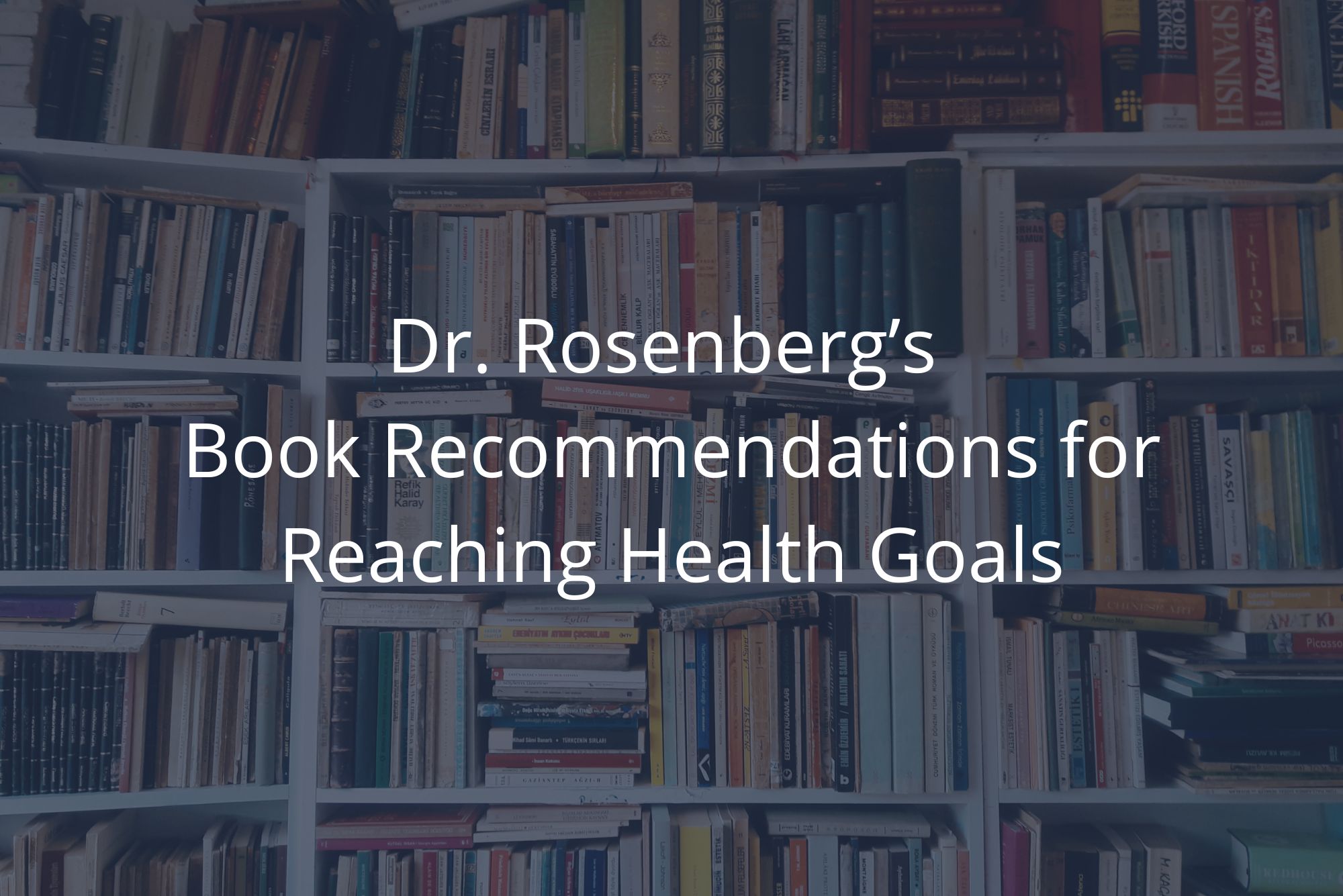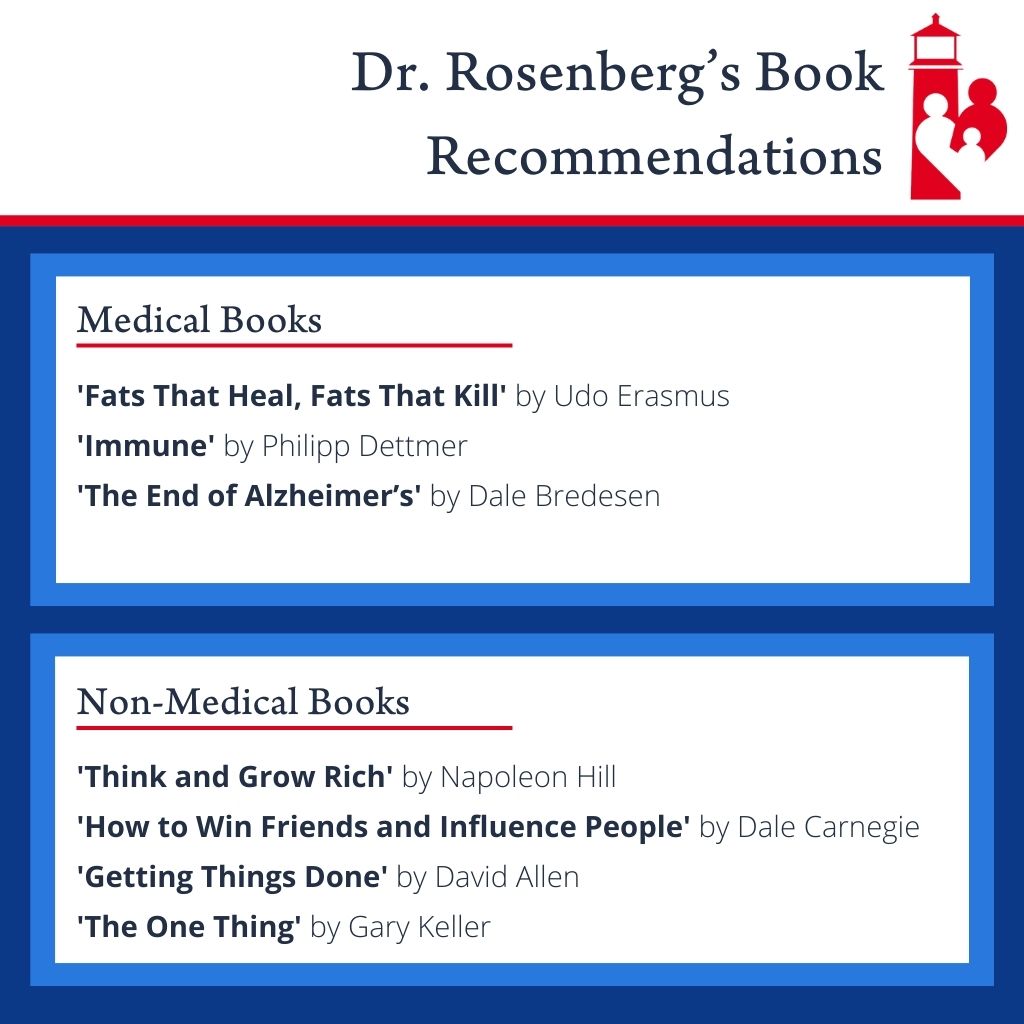
Reading is part of a healthy life: it helps us grow, learn, and improve. But because there’s no shortage of information in our world today, finding good material to read can be difficult. Consuming quality content is important, because — kind of like you are what you eat — in a way, you are what you read.
In general, if I read a book and walk away with a couple things I can use, I’m satisfied. But there are some books that so thoroughly nail a topic, I walk away with many things to implement.
Today, I want to share a list of those kinds of books with you. While their subjects vary, they either give you medical information or actionable self-development tips, all of which can be a boon to personal health. Read on.
Medical Books
‘Fats That Heal, Fats That Kill’ by Udo Erasmus
We all know nutrition is important, but it can be overwhelming to try to implement healthy changes. This book is revolutionary when it comes to differentiating “good” foods from “bad” ones. Erasmus effectively details what’s so bad about processed foods — because knowing why makes it easier to build a lifestyle of avoiding them.
Contrary to popular belief, fats are critically important nutrients. So why the bad rap? When we prepare foods in oil at high heat, we change their nutritional quality for the worse. Not only does the food become less nutritionally valuable, but it can also become actively harmful.
How it helps your health — Gives a clear understanding of what “healthy eating” actually is.
‘Immune’ by Philipp Dettmer
Dettmer does an excellent job of helping the reader understand the complexity of the immune system and how it needs to be respected and supported. The book delves into subjects like how vaccines work and the benefits and detriments of antibiotics.
Dettmer simplifies a very complex system without oversimplifying it, giving us a deeper understanding of how the immune system can both protect and harm us.
For example, the book points out that it’s dangerous to overstimulate the immune system, and many lifestyle choices do just that. Overstimulating the immune system weakens its ability to protect us, and can even trigger the immune system to fight against itself, resulting in autoimmune disorders like rheumatoid arthritis, diabetes and lupus, just to name a few. This book is a fabulous resource that gives an understanding of where the immune system can go awry.
How it helps your health — Explains immune system function and malfunction so you can better care for yourself.
‘The End of Alzheimer’s’ by Dale Bredesen
Most of us feel helpless when confronted by Alzheimer’s dementia — just thinking about it can lead to despondence.
In his book, Bredesen clearly delineates and explores risk factors, but it doesn’t stop there. He also provides action steps to help lower the chance of developing Alzheimer’s, with a focus on nutrition and lifestyle interventions. The earlier Alzheimer’s is diagnosed and intervention begins, the better your chances of delaying — and potentially reversing — the disease process.
How it helps your health — Provides strategies to slow down Alzheimer’s through lifestyle and nutrition.
Non-Medical Books
On the face of it, you might not think of the following books as belonging on a physician’s blog. But remember, a state of health is not simply the absence of disease. There are many facets of our health, which I call the 4 Pillars of Health: nutrition, movement, sleep, and stress elimination.
The following books explore crucial aspects of human health and give their readers actionable tips to create overall system changes and net gains.
‘Think and Grow Rich’ by Napoleon Hill
The title of this book could lead you to think this is a hocus-pocus wish-granting manual, but it’s not. Instead, Hill lays out how we can practicably increase the likelihood of getting what we want based on our attitudes.
It’s indisputable that much of life is outside of our control; however, this book demonstrates that more is within our control than we realize.
Long-term and repetitive stress leads to disease. Chronic patterns of negativity like worry, guilt, resentment, and complaining all stir up stress hormones. Conversely, when we experience persistent hope, enjoyment, laughter, and love, we live in a mixture of hormones that promote health.
How it helps your health — Shows you how to positively use your desires, increasing happiness and eliminating stress.
‘How to Win Friends and Influence People’ by Dale Carnegie
Dale Carnegie’s well-known book is, briefly, a manual of human psychology. It helps us become better relational partners — regardless of the role we’re filling. Whether it’s spouse, friend, employee, or leader, this how-to manual emphasizes the importance of healthy relationships. One of my favorite tips is to practice refraining from the “3Cs”: complaining, condemning, and criticizing.
Humans are social beings; we need each other. This book teaches you how to deal with conflict and seed healthy relationships.
How it helps your health — Leads to a more fulfilling and connected life.
‘Getting Things Done’ by David Allen
David Allen’s system of organization offers a practical way to minimize the clutter of life in order to — you guessed it — get things done.
Through his well-thought-out process, Allen teaches you to eliminate the unnecessary so you have the space to stay on top of your short-term inbox and long-term life goals. This tremendously lowers stress, increases mindfulness, and provides you the time to do the things you want to do.
How it helps your health — Prevents overwhelm and promotes healthy use of time and energy.
‘The One Thing’ by Gary Keller
This book teaches you the one thing you need to do such that by doing it, everything else becomes less important or unnecessary. Keller delves into ideas like prioritization, focus, and how multitasking is a complete fallacy.
Whatever your goal — losing weight, getting in shape, lowering stress — this book teaches you how to succeed.
How it helps your health — Keeps you focused on your goals and increases success rates.
Final Thoughts
I hope you’ll consider adding one or two of the books above to your reading (or audio book) list. They have so much to offer for anyone who’s interested in improving and understanding their health. While not all the books are medical in nature, they can all contribute to a healthier, more fulfilled life.
Dr. Rosenberg’s Book Recommendations for Reaching Health Goals
Copyright © 2022 Vita Optimus, L.L.C.. All rights reserved.
GET MORE INFO

Dr. David Rosenberg
Dr. Rosenberg is a board-certified Family Physician. He received his medical degree from the University of Miami in 1988 and completed his residency in Family Medicine at The Washington Hospital in Washington, Pennsylvania in 1991. After practicing Emergency Medicine at Palm Beach Gardens Medical Center for two years, he started private practice in Jupiter, in 1993. He is an avid baseball fan and Beatles fanatic, since he was 8 years old. He has been married to his wife, Mary, since 1985 and has three grown children.
David completed additional studies at Mercer University, Macon, Georgia and obtained a BS in Chemistry in 1983.
“My interests include tennis, snow skiing, Pilates and self-development.”

